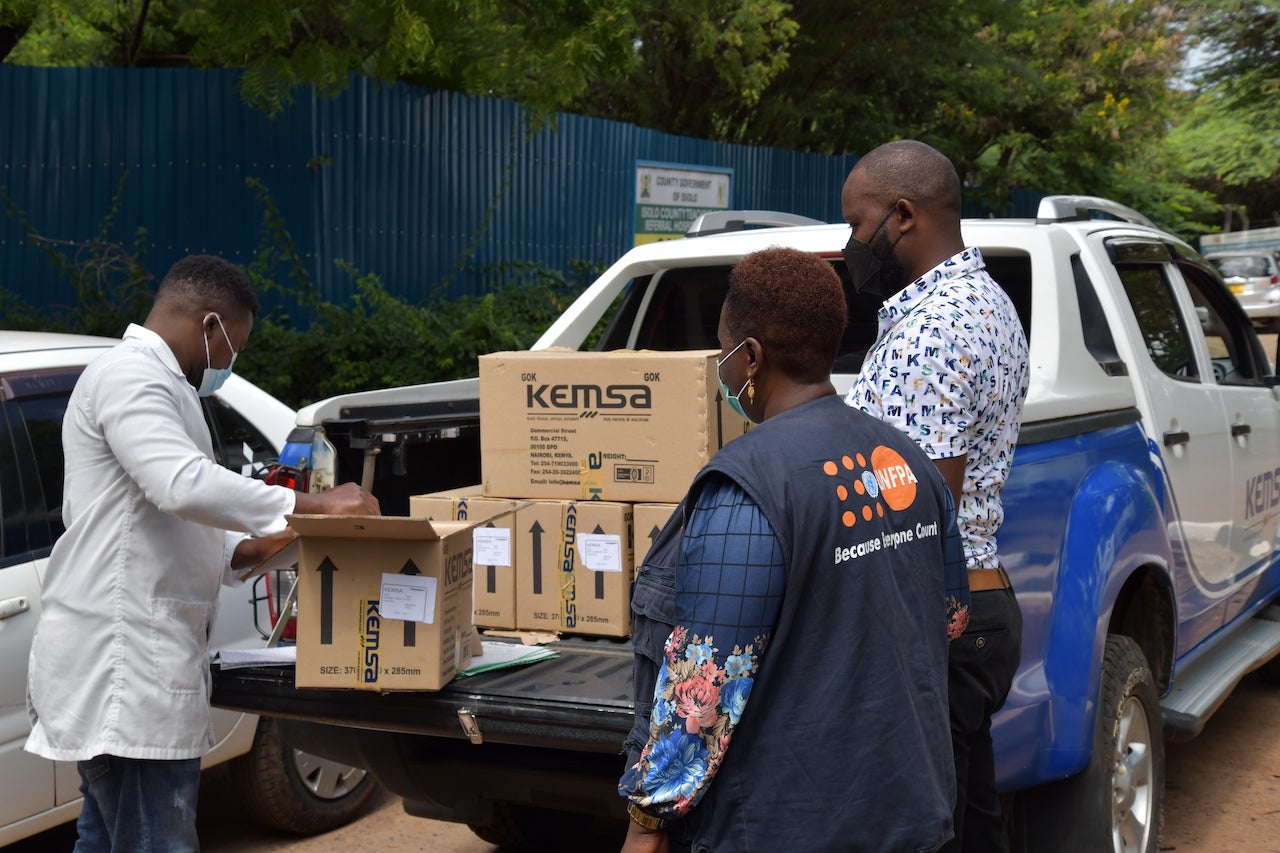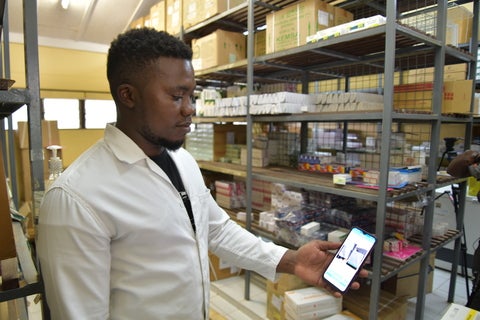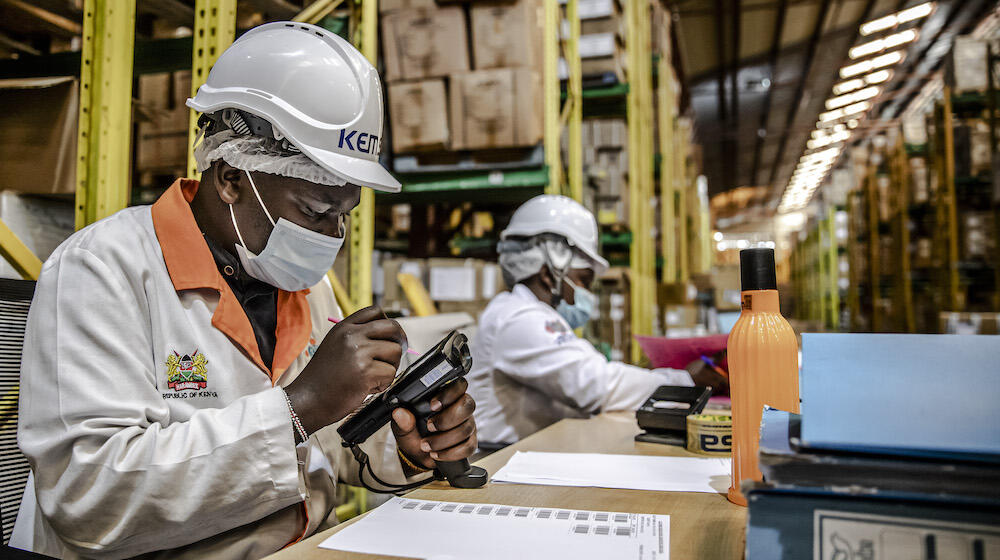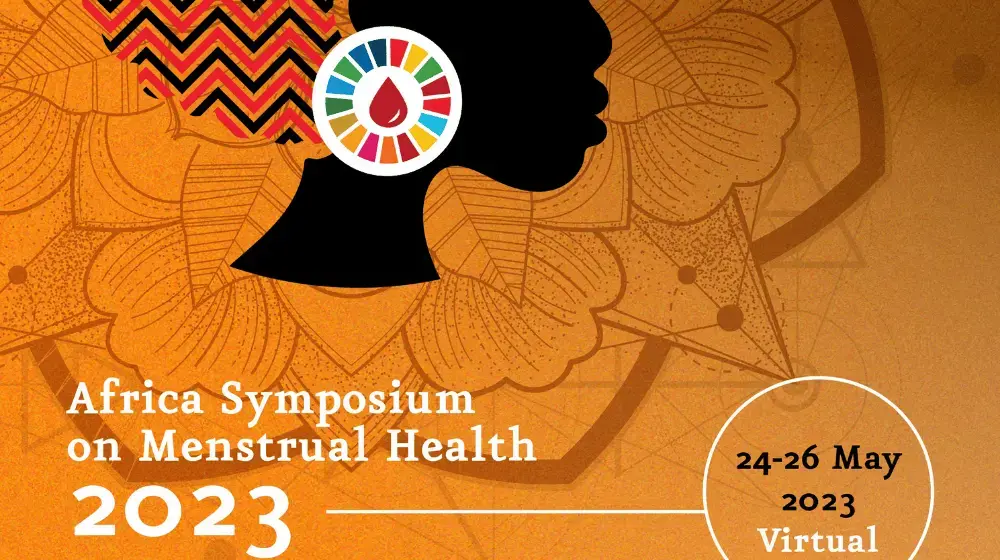ISIOLO, Kenya—As a frontline health-care worker at Isiolo County referral hospital, Denis Mutirithia has a critical role – and a new digital tool that will help him save lives. The pharmaceutical technologist is tasked with predicting and preventing shortages and stock-outs of essential drugs, including contraceptives.
If he takes delivery of the essential medicines and supplies he receives from the Kenya Medical Supplies Authority (KEMSA) on time, the hospital's clients have timely access to the medicines they need. But if they are late, a litany of disasters can result, including unintended pregnancies and higher maternal and neonatal deaths.
By checking the app on my phone, I am able to tell when a particular delivery of family planning commodities is expected to arrive.
Now, a new app is set to become a game changer for health-care workers like Mr. Mutirithia. The Electronic Proof of Deliveries, or e-POD app, keeps track of deliveries to primary health facilities with the simple touch of a button on a mobile phone.
“By checking the app on my phone, I am able to tell when a particular delivery of family planning commodities is expected to arrive. This helps us to advise clients accordingly, so that they get their method of choice at their next appointment,” he says.

Global award winner
The e-POD app received the best innovative health supply chain solution award at the 2021 Global Health Supply Chain Summit in early December. It was developed to improve the delivery of family planning commodities and other essential medicines and supplies to health facilities in Kenya. So far, it has been rolled out in ten counties in the country and is expected to be available in all 47 counties by mid 2022.
With the introduction of this new system, we will be able to ensure commodities are delivered in the correct health facilities, in the right quantities and at the right time.

“Prompt delivery of commodities and supplies has been one of the significant challenges we have been experiencing, as KEMSA. With the introduction of this new system, we will be able to ensure commodities are delivered in the correct health facilities, in the right quantities and at the right time. This will help us facilitate timely payments to our suppliers and transporters, and timely billing to development partners supporting family planning programmes,” said acting KEMSA Chief Executive Officer, Edward Njoroge.
The mobile app was developed as part of the “last mile Kenya” programme, implemented through a partnership between KEMSA and Coca-Cola Beverage Africa, with the support of UNFPA. The app borrows from Coca-Cola’s expertise and best practices in supply chain management and distribution. It digitizes data entry at the point of delivery to provide real-time data on the commodities received, their quantities and time of delivery.
The KEMSA e-POD app uses a GPS to ensure that the commodities are delivered to the correct health facilities. The app allows health facilities to report that they have received commodities in the right quantities. It also monitors order turnaround times to prevent delays in delivery that could lead to stock-outs of life-saving health commodities at health facilities.
Improving supply of contraceptives
The e-POD app is one of two innovations, developed with support from UNFPA, that seek to improve the delivery of family planning commodities.
In 2019, UNFPA in partnership with HealthStrat rolled out Qualipharm, a digital reporting tool that tracks the consumption of family planning commodities at the county, sub-county and facility level. The app is loaded onto tablets distributed to commodity managers, including pharmacists and commodity managers at public health facilities, who use it to take stock of commodities consumed during the period, and also to place orders.
The introduction of e-POD and Qualipharm applications is set to be a game changer, not only for health-care staff, but for those who rely on public health facilities to access lifesaving health commodities, including family planning.
The use of these reporting tools provides end-to-end visibility for essential supplies. They are also improving the quality of data reported.
“The introduction of e-POD and Qualipharm applications is set to be a game changer, not only for health-care staff, but also for the citizens who rely on public health facilities to access lifesaving health commodities, including family planning. Provision of family planning commodities contributes to the elimination of unintended pregnancies which eventually leads to reduction of maternal and newborn mortality, as well as improving the health and well-being of women and girls,” said Charity Koronya, UNFPA family planning and commodities security specialist.





